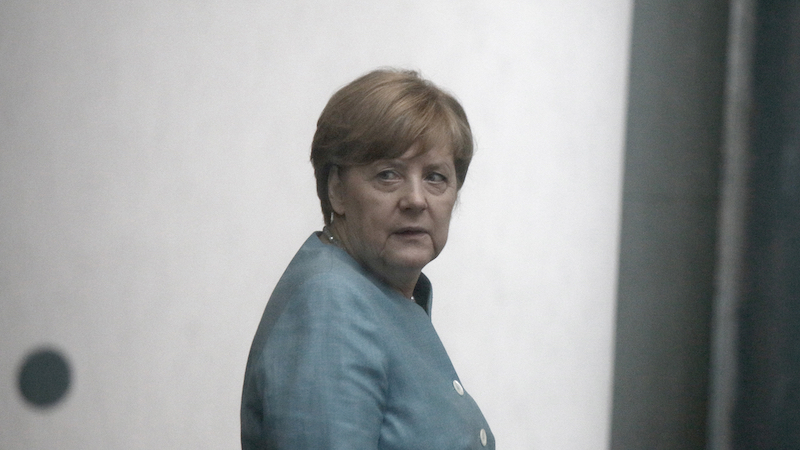Ask me today which country has contributed most to the fight against climate change and my immediate answer is Germany. Ask me the same question after the June European Council meeting and I hope my answer will be the same.
Ever since the Intergovernmental Panel on Climate Change (IPCC) began to give us clear signals that we humans are responsible for climate change, Germany has been on the front lines of political efforts to agree international action. Germany hosted the first Conference of Parties to the Climate Convention, providing the mandate to negotiate and agree rich country targets. Two years later the Kyoto Protocol was successfully adopted. At that gruelling session, then environment minister Angela Merkel urged her EU colleagues into line and negotiated the agreement with other nations.
Ever since, all Germany’s presidencies of the EU and each G8 (and G7) meeting Germany has hosted, have led to strong political agreement on climate action, even at times when the White House was less than eager to play along. Germany helped to negotiate Russia’s ratification of the Kyoto Protocol as a gateway to Russia’s OECD membership and Germany has forged a strong EU foreign policy on climate, including telling then-president George W. Bush that he might not care about climate, but that there were also things in his interest that might not be front and centre in terms of European attention.
Majority of EU states, including Germany, now support 2050 net zero climate goal
Similarly Germany has recognised the need to support developing country action to address climate change in the face of pressing challenges to eradicate poverty and drive economic growth. It has created numerous financial instruments and support programmes to help the south engage. Chancellor Merkel was probably also the first world leader to recognize that fighting climate change at its roots in Africa was probably a better way to stem the flow of migrants than to invest in more patrol boats along the Mediterranean coast.
Last but not least, Germany has led at home. Reaching strong agreements with domestic industry, launching a massive energy transition and plastering the rural landscape with solar panels. Similarly Germany has been key in agreeing European goals, not just on emissions, but also on the circular economy and the need to fundamentally shift Europe’s business model to be clean, clever and competitive.
We need your help… Climate Home News is an independent news outlet dedicated to the most important global stories. If you can spare even a few dollars each month, it would make a huge difference to us. Our Patreon account is a safe and easy way to support our work.
This has built the strong reputation of Merkel as the German “climate chancellor”. But as international momentum accelerated – Germany took its foot off the gas and kept burning coal. You would have thought the Paris Agreement and IPCC 1.5C report might have given Berlin the space it needed to boost German leadership even further. It did not – quite the contrary. Germany seems to have moved to the back seat of EU climate ambition and despite announcing a 2038 coal phase-out date is struggling to set out a clear path for domestic targets to be achieved.
This week with the upcoming European Council, Germany has the chance step up again. It would be key at a time when perhaps we need European ambition most, especially given the European election outcomes, the Brexit trauma and less than favourable stances of the US, Russia and Brazil. The ask from the UN secretary general is clear, he expects leaders to come prepared with a net-zero goal by 2050, the commitment to enhance their NDC next year and a concrete plan how to get there.
Will Germany stand for strong ambition at the forthcoming European Council or will it join the ranks of those who thinking that talking climate action is enough to do the trick? At a time when VW is rolling out a new range of electric cars, and Daimler is announcing a carbon neutral car fleet by 2039, the signals from Germany’s industrial giants could not be clearer. The stunning success of Germany’s greens in the EU elections and polls showing 81% of Germans want tougher climate action should offer Merkel further comfort that ambition is the only way to go.
At a time when one is hard pressed to find a solid argument not to act on climate change, be it economic, social or environmental. We need rigour and consistency to bring us all, and especially business, what is needed most: consistent ambition.
Yvo de Boer is president of Gold Standard. He was executive secretary of the United Nations Framework Convention on Climate Change (UNFCCC) from 2006-2010.
